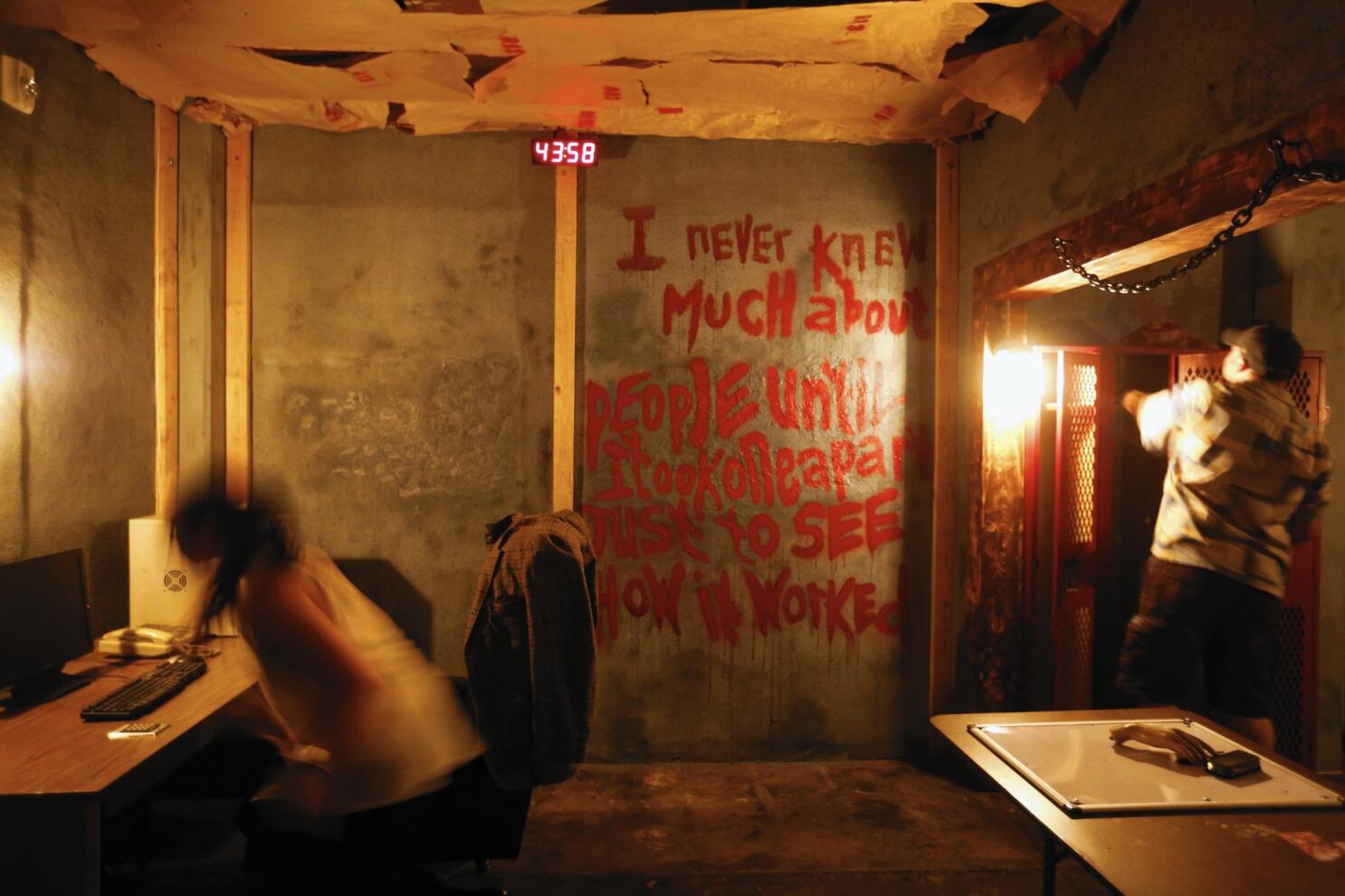Group Techniques: Just How to Work together Effectively in an Escape Space
Browsing the intricacies of a getaway space requires greater than plain enthusiasm; it calls for a well-coordinated strategy grounded in clear communication, calculated function jobs, and adept time management. Groups should proactively listen to every member's understandings, assign functions that align with specific staminas, and preserve normal check-ins to make sure emphasis and prevent redundancy. By fostering a setting that values cohesion and adaptability, teams can significantly increase their effectiveness and success rates. The nuances of these methods can transform the experience, yet how precisely can they be implemented to optimize the potential for success?
Establish Clear Interaction

To facilitate clear communication, it is necessary to mark a main factor of get in touch with for details dissemination. This role involves summing up findings and suggested approaches to make certain every person stays on the exact same web page. Furthermore, adopting a methodical technique to conversations can protect against disorderly exchanges. As an example, quick, focused updates from each group participant can keep the group informed without overwhelming them with details.

Designate Roles Purposefully
While clear communication sets the structure for efficient synergy, designating roles purposefully makes sure that each staff member's staminas are used successfully. In an escape space situation, the time-sensitive and complicated nature of difficulties requires an efficient technique to task delegation. By determining and leveraging specific proficiencies, teams can optimize their problem-solving capacities and enhance overall performance.
First, evaluate the one-of-a-kind abilities and characteristics of each participant. A person with an eager eye for information may succeed in discovering surprise things, while a rational thinker could be better suited to fixing problems. It's equally essential to have a leader who can look after progression, handle the timeline, and make decisive phone calls when required. This role typically needs strong business and interpersonal abilities.
Second, guarantee that roles are adaptable and versatile. As new difficulties arise, the group must have the ability to pivot, reallocating tasks as required. This flexibility aids keep energy and prevents traffic jams that can happen due to rigid role tasks.
Eventually, a tactical approach to duty assignment not only takes full advantage of the staminas of each team member yet likewise promotes a cohesive atmosphere, driving the team towards a successful retreat.
Utilize Diverse Abilities
Recognizing and using the diverse abilities within your group can dramatically boost your performance in a retreat space. Each staff member important link brings unique toughness to the table, and successfully leveraging these abilities can quicken analytical and enhance general effectiveness. For instance, a group participant with solid analytical skills could succeed at analyzing intricate codes or patterns, while another with eager observational abilities might rapidly detect covert ideas that others could overlook.
Reliable communication is essential to using these diverse skills. Urge employee to voice their understandings and ideas without delay, guaranteeing that all possible solutions are taken into consideration. This inclusive approach cultivates a vibrant setting where creative thinking and vital thinking can prosper. In addition, appointing tasks that line up with each participant's toughness can prevent bottlenecks and ensure that progression is continuous.
Furthermore, diversity in abilities frequently equates to variety in thinking styles, which is very useful in a getaway space this website setting. While some obstacles might call for rational reasoning and accuracy, others may take advantage of imaginative and side thinking. By recognizing and leveraging this variety, groups can attend to a wider series of difficulties better, consequently raising their possibilities of a successful retreat.
Manage Time Successfully

First, allocate initial minutes for a fast survey of the room. Recognize noticeable puzzles and divide tasks based on group participants' staminas, making certain that no one is idle. Establish internal time checkpoints to examine progress periodically; as an example, goal to have half the challenges solved by the mid-point of the video game. This practice can aid keep the team focused and stop time from slipping away unnoticed.
In addition, prevent one-track mind. If a puzzle is taking also long, revolve group members or go on to an additional obstacle, returning later on with fresh point of views. Interaction is critical-- maintain everyone updated on solved puzzles and remaining tasks to avoid repetitive efforts.
Finally, use any kind of tips or clues moderately yet tactically - best escape click for info room. Recognizing when to request for assistance can save useful time. By adhering to these time administration concepts, teams can substantially enhance their possibilities of an effective and satisfying retreat area experience
Debrief and Reflect
Representation is a vital aspect of group advancement and renovation in the context of escape rooms. As soon as the challenge is finished, whether efficiently or otherwise, it is essential for the team to take part in an organized debriefing session. This process permits staff member to evaluate their performance, recognize staminas, and determine areas for improvement.
Begin the debrief by reviewing what worked out. Highlight certain instances of reliable interaction, analytical, and partnership. Identifying these favorable behaviors strengthens them and encourages their repetition in future challenges.
Following, attend to the obstacles experienced. Go over moments of confusion, miscommunication, or inefficient techniques. Motivate an open and positive discussion where employee can share their perspectives without worry of criticism. This promotes a culture of constant enhancement and learning.
Final Thought
Finally, effective partnership in a retreat space is asserted upon clear communication, strategic role jobs, the efficient usage of varied skills, and skilled time monitoring. Regular check-ins and structured debriefings are vital for preserving emphasis and cultivating constant renovation. By producing a cohesive and flexible team setting, the possibility of successfully addressing challenges and achieving the goal of escaping the room is significantly improved. This strategy not just ensures success however also advertises collective growth and discovering.